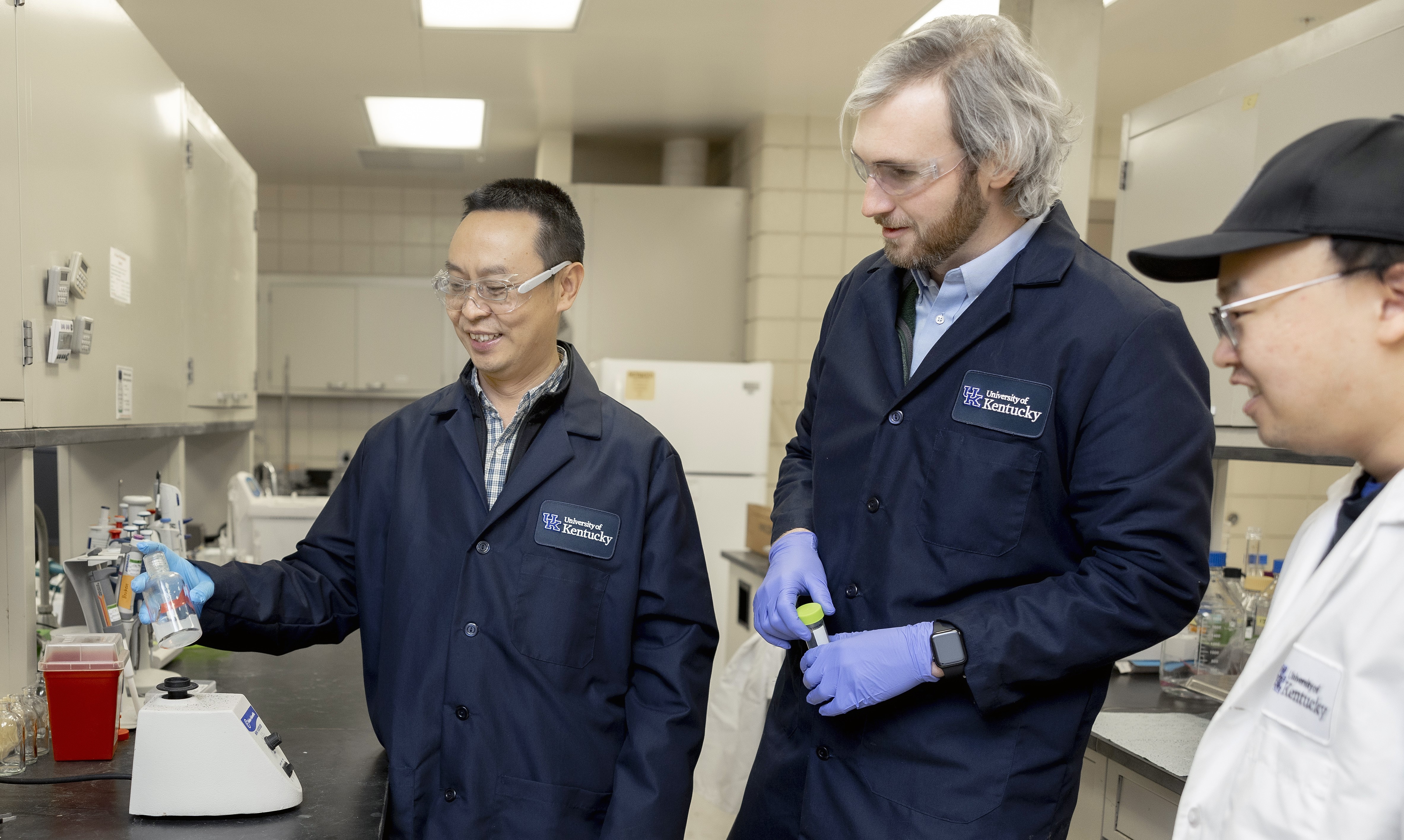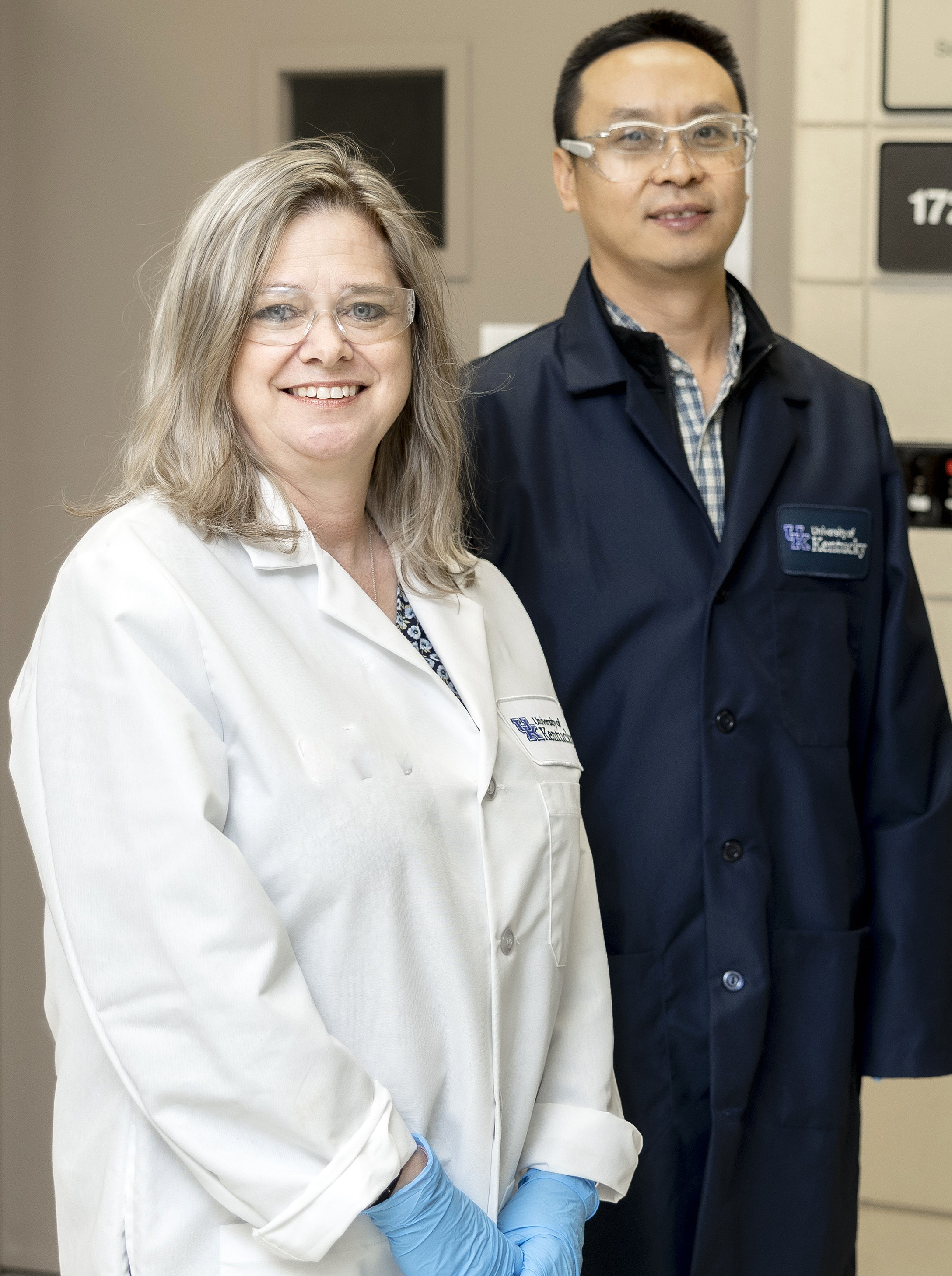University of Kentucky scientists develop eco-friendly magnet to battle microplastics
University of Kentucky scientists develop eco-friendly magnet to battle microplastics


Plastic pollution is a pressing environmental issue, and University of Kentucky Martin-Gatton College of Agriculture, Food and Environment researchers are leading the charge with an innovative solution.
The college’s Department of Biosystems and Agricultural Engineering (BAE) is partnering with the UK Department of Chemical and Materials Engineering to tackle the tiny, often unseen, particles of plastic now found in the world’s oceans.
What are NADES?
The research, published in Scientific Reports, centers on an intriguing solution: using Natural Deep Eutectic Solvents (NADES) to capture and remove these miniature particles from water.
"The challenge of micro- and nano-plastics in our environment has been gaining intense attention recently,” said BAE associate professor Jian Shi. “These minute particles, often invisible to the naked eye, are the remnants of larger plastic pieces broken down by sunlight and physical stress. Their size makes them notoriously difficult to remove using conventional methods like centrifugation or filtration, which are either inefficient or too costly."
Plastic is a durable, cheap material, making it a staple in daily life. However, its strength is also its environmental downfall.
Plastics don't break down easily, leading to massive piles of waste. Over time, these plastics break into smaller fragments. The smallest, nano-plastics, are so tiny they can't be seen without a microscope. Their size makes them a significant hazard, as they can be ingested by marine life and enter the human food chain.
“Think of NADES as a kind of 'magnet' that specifically attracts and holds onto these small plastic pieces,” said Czarena Crofcheck, BAE professor and study co-author. “Basically, the NADES mix with the water and 'stick' to the plastics, pulling them out of the water.”

The molecules in the NADES can form bonds with the molecules in the plastics, a bit like how Velcro works: one side sticks to the other. This property makes NADES particularly good at grabbing onto and holding these plastic particles.
NADES are also unique because they are effective and environmentally friendly. They're made from natural materials, meaning they don't add more pollutants to the environment while cleaning up the existing ones.
"Our approach introduces the concept of deep eutectic solvents, which are unique in their composition and behavior,” Shi said. “Derived from natural sources like mint plants and coconuts, these solvents transform from solid to liquid when mixed, creating an effective medium to extract these tiny plastic particles from water."
However, the researchers believe NADES can only get better from here.
"At the time the study started, NADES were a relatively new discovery and so the list known NADES was limited," said Jameson Hunter, first author of the study and now an associate research engineer with the UK Institute for Decarbonization and Energy Advancement. "We settled on three with hydrophobic properties made from readily available and non-toxic components. Now with further research, there is a lot of potential in discovering other NADES with similar or better extraction properties."
The researchers focused on polyethylene terephthalate (PET) like that found in plastic bottles, polystyrene (PS) used for materials such as packaging peanuts and polylactic acid (PLA) used for plastic films and food containers. Using computer simulations, they could see how these interactions work on a minute scale.
Discovery
Their experiments revealed that certain NADES are particularly good at extracting these types of plastic from water. This discovery was crucial, offering a targeted approach to removing plastics.
The research presents a new, effective way to clean waters of micro- and nano-plastics. Additionally, it provides a potential pathway to recycle and reuse these plastic particles, resulting in significant environmental and economic benefits.
"Imagine being able to lessen our overall environmental footprint,” Crofcheck said. “With contributions from chemical engineering for molecular simulations, we've been able to deepen our understanding of why these solvents are more effective at pulling plastics out of water. This theoretical understanding is crucial for advancing practical applications and future research."
While the research is still in its developmental stages, the team is optimistic about its potential applications.
“Our next step is to test these solvents on a larger scale and in various environmental conditions,” Shi said. “We think that NADES could be a game-changer in our fight against plastic pollution."
To view the complete study, visit https://www.nature.com/articles/s41598-023-37490-6.
Research reported in this publication was supported by the National Science Foundation under Award Number 1632854. The opinions, findings, and conclusions or recommendations expressed are those of the author(s) and do not necessarily reflect the views of the National Science Foundation. This work was also supported by the USDA National Institute of Food and Agriculture under project accession no. 1018315.
# # #
The Martin-Gatton College of Agriculture, Food and Environment is an Equal Opportunity Organization with respect to education and employment and authorization to provide research, education information and other services only to individuals and institutions that function without regard to economic or social status and will not discriminate on the basis of race, color, ethnic origin, national origin, creed, religion, political belief, sex, sexual orientation, gender identity, gender expression, pregnancy, marital status, genetic information, age, veteran status, physical or mental disability or reprisal or retaliation for prior civil rights activity.
Research
